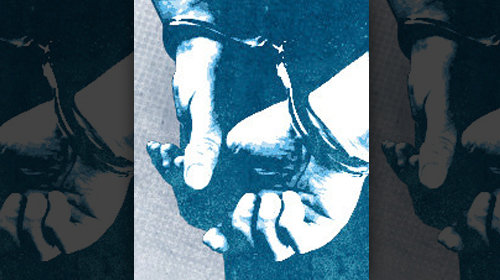
Today, the U.S. has the highest incarceration rate of any country in the world. With over 2.3 million men and women living behind bars, our imprisonment rate is the highest it's ever been in U.S. history. And yet, our criminal justice system has failed on every count: public safety, fairness and cost-effectiveness. Across the country, the criminal justice reform conversation is heating up. Each week, we feature our some of the most exciting and relevant news in overincarceration discourse that we've spotted from the previous week. Check back weekly for our top picks.
A Pair of Decidedly Positive Developments on the Federal Front
I've talked previously on this blog about the many problems with solitary confinement, and you can learn a lot more here. This week, the Federal Bureau of Prisons agreed to a comprehensive review of the use of solitary confinement in its prisons after pressure from Illinois Senator Dick Durbin. The National Institute of Corrections study will report on the effects of solitary confinement on prisoners as well as public safety and fiscal concerns with the practice. The decision continues the momentum to scrutinize solitary confinement in federal prisons following last summer's first-ever Senate hearing on solitary confinement.
In another positive development, two House members introduced legislation to regulate marijuana the way the federal government handles alcohol: In states that choose to legalize marijuana, growers would have to obtain a federal permit. The Drug Enforcement Administration would no longer have authority over marijuana, which would instead by overseen by the Bureau of Alcohol, Tobacco, Marijuana and Firearms. It would remain illegal to bring marijuana from a state where it's legal to one where it isn't, and excise taxes on marijuana sales would be used to fund law enforcement, substance abuse treatment, and bring down the national debt.
Iowa Demonstrates That Parole Reform Can Mean Fewer Prisoners, Safer Streets
Iowa's prison population is down about 10 percent since 2010, in large part because the state is releasing more low-risk people from probation and parole. Parole grants in 2012 increased by about 22 percent from the previous year.
Releasing low-risk people has freed up resources to provide the best supervision and treatment for prisoners who pose a greater risk, including substance abuse treatment, vocational education GED classes, behavioral programs, drug courts and mental health courts—programs that tend to be good investments because they typically reduce recidivism rates. In addition, staff-to-prisoner ratios are higher, improving safety in Iowa facilities.
New York's Chief Justice Calls State's Bail System Unfair to the Poor
In his State of the Judiciary address, New York Chief Judge Jonathan Lippman criticized New York's pretrial release practices as unsafe and unfair to the poor, and called for an overhaul. He observed that bail amounts have risen and that pretrial release rates have correspondingly dropped, and identifies the bail bond industry's role in increasing bail amounts (bail bondsmen earn a percentage of the bond, which means that higher bail is more profitable). "More than simply being unfair, incarcerating indigent defendants for no other reason than that they cannot meet even a minimum bail amount strips our justice system of its credibility and distorts its Operation," said Lippman. You can read his full address here.
In an Unusual Case, Federal Prosecutors Seek Life in Prison for Amish Beard-Cuttings
Federal prosecutors in Ohio are seeking life in prison without parole for an Amish bishop who encouraged his followers to shear the beards of several fellow Amish men. Samuel Mullet, Sr. did not participate in the five hair- and beard-shearings in 2011, but was convicted of federal hate crimes for knowing about the assaults, which you can read about here, and failing to stop them from occurring. Two points are particularly noteworthy: (1) 14 other Amish communities have petitioned the Department of Justice to seek a "long" or "life" sentence in the case; and that (2) none of the victims suffered more severe physical harm than nicks, bruises, and shorn beards.
Learn more about criminal law reform and other civil liberty issues: Sign up for breaking news alerts, follow us on Twitter, and like us on Facebook.

